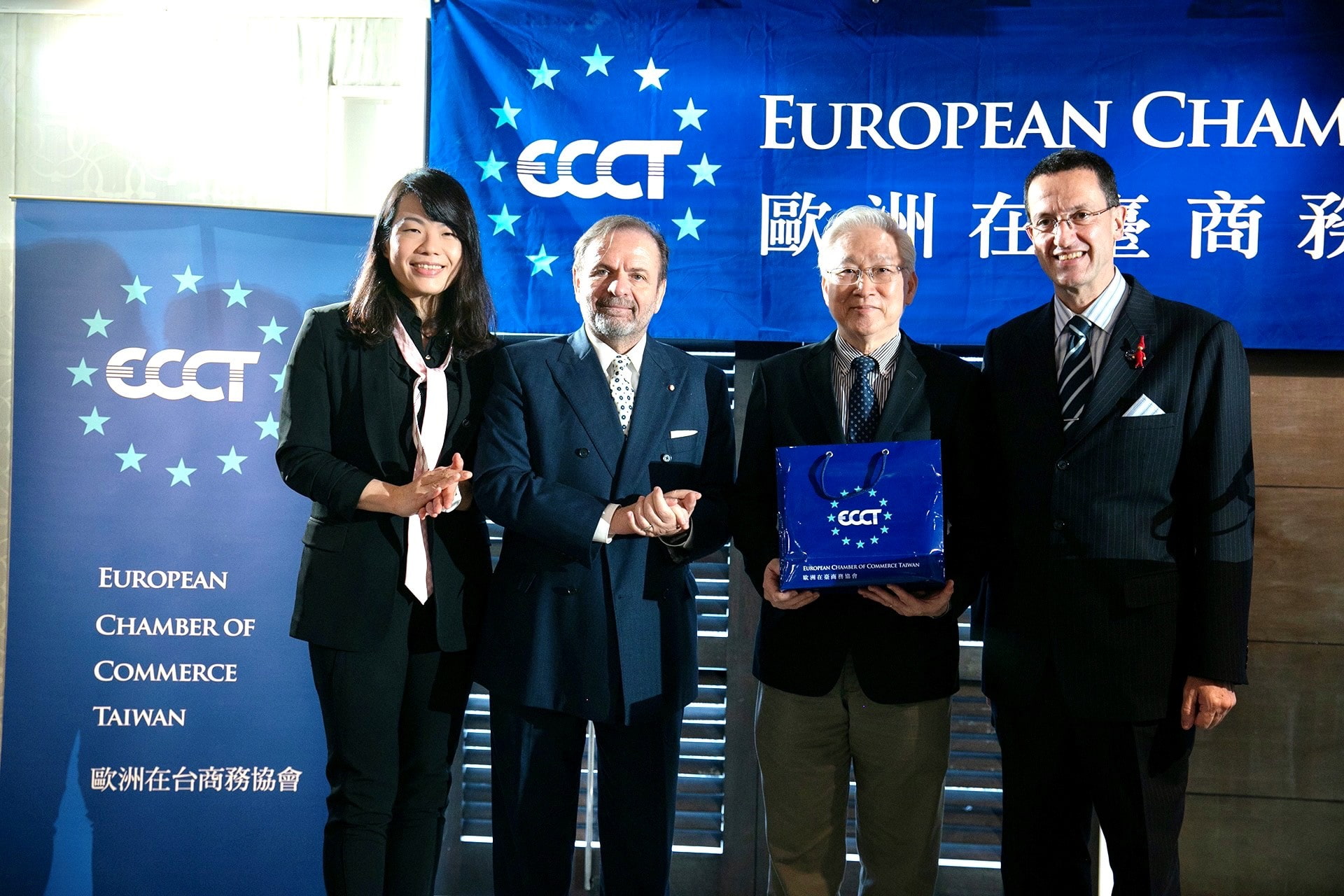Lunch with MOST Minister Wu

The ECCT hosted a Premium Event lunch with Dr Wu Tsung-tsong, Minister of the Ministry of Science and Technology (MOST). The minister gave a presentation on the topic "Accelerating the transition to a Smart Taiwan post Covid-19" and answered questions from members during a Q&A session.
In his introduction, Minister Wu noted that while Covid-19 has overshadowed almost every other subject of discussion this year, it has not changed the plans or priorities of the MOST. According to Wu, the MOST takes a holistic and long-term approach in its planning that considers not just technology but also the impact on people and environment. He reminded the audience that while everyone is preoccupied with Covid-19 at the moment, just a year ago, they were concerned about protests in Hong Kong and the US-China trade war.
The pandemic has sped up some of the trends that were already ongoing before the pandemic. Taiwan is facing similar trends as the rest of the world and the consequent challenges posed by these trends. For example, an ageing and declining population and urbanisation produce challenges for the workforce, while digitalisation, automation and disruptive business models are affecting employment and producing income inequality. However, Wu expressed optimism that these challenges can be addressed by, for example immigration. He said that more and more "second generation Taiwanese" (those born abroad to Taiwanese parents) are moving to Taiwan with their young families to start new jobs or businesses.
In its 2030 plans, the MOST highlights goals to create a circular and sustainable society (with zero waste and zero pollution), a diverse and inclusive society (an integrated cross-cultural and trans-generational society), an innovative-driven and connected society (with virtual reality integration that connects people and things, such as AI, 6G and robots). The MOST's digital strategy for Post Covid-19 industrial recovery includes industrial support, unemployment relief, cyber security, digital transformation for SMEs and internet penetration in rural areas.
Minister Wu is optimistic about the future given that Covid-19 has prompted a rethink of global supply chains and the steady rise in inbound investments into Taiwan, both from foreign and Taiwanese investors. He cited a figure of US$120 billion in pledges for investments in Taiwan's technology parks.
Wu said he sees many opportunities as all industries adapt to and embrace digitalisation. Taiwan also has great potential in the field of precision healthcare by combining Taiwan's comprehensive medical insurance system, excellent medical professionals and skills as well as inclusive ICT infrastructure to develop precise medicine. According to Wu, Taiwan has 31 sets of biobanks and 4.5 million sets of specimens. Using cloud computing and sophisticated analysis, this data can be harnessed for research into developing precision medicine. The MOST's other areas of focus are green energy, smart machinery and advanced agriculture. Cyber security is another important area that the MOST is paying close attention to and in which Mister Wu expects greater cooperation with European and American partners in future. According to Wu, Taiwan is building up its cyber security capacity though cultivating talent and advanced cyber technologies to deal with foreign cyber security threats.
Taiwan has been called one of the world's top four "super innovators", together with Germany, the US and Switzerland for two consecutive years while Taiwan ranked No. 11 in IMD's World Digital Competitiveness Ranking 2020. Taiwan has also been recognised by top global tech companies for its potential. For example, Microsoft established an AI innovation centre in Taiwan in 2018 while Google is cultivating talent and Synopsis has established an AI design centre.
In terms of government support, Taiwan will advance six core industries through the government's "DIGI+" and the "5+2 Industrial Transformation" programmes and enhance investments in semiconductors, cyber‐security, cyber‐infrastructures, precision health, satellites for 5G and Beyond, and industrial digital transformation. The MOST will assist in this by providing funding for fundamental research.
Looking ahead, in terms of advanced internet infrastructure, the government aims to make Taiwan the hub for international submarine communications cables to link Taiwan with the world. Taiwan is also developing the R&D for satellite components and its infrastructure supply chain, including ground systems, satellite systems, electronic components to promote satellite applications in disaster prevention and land surveying.
